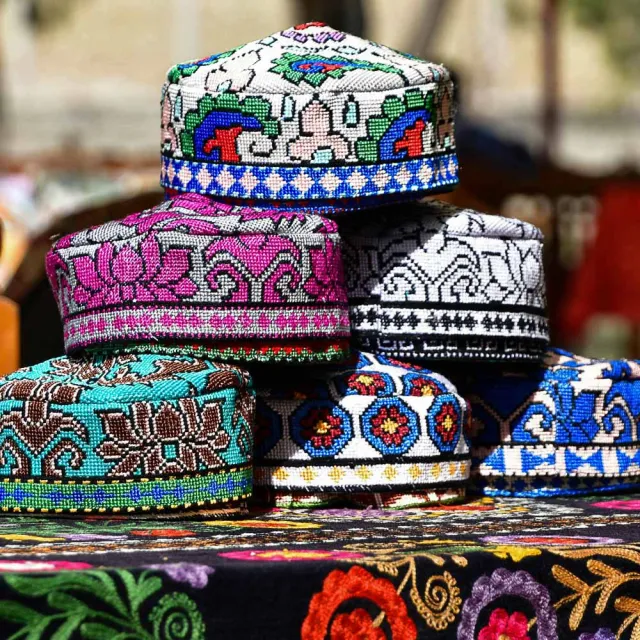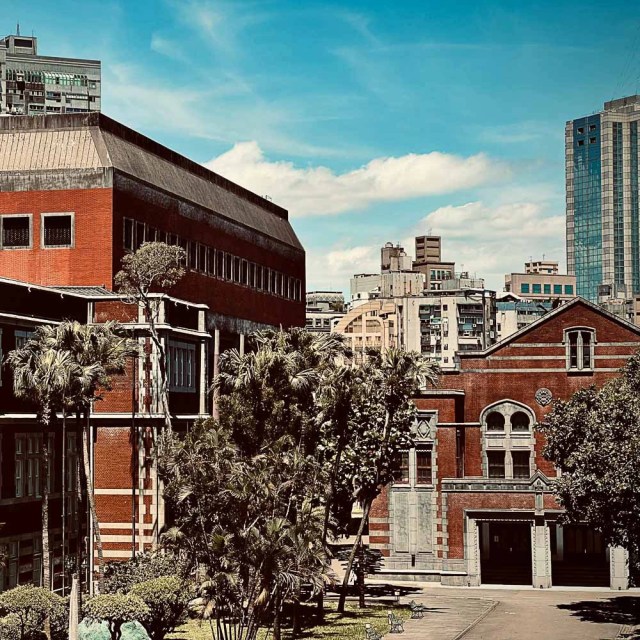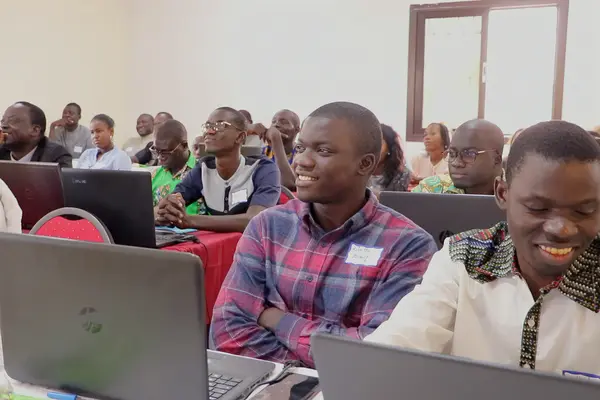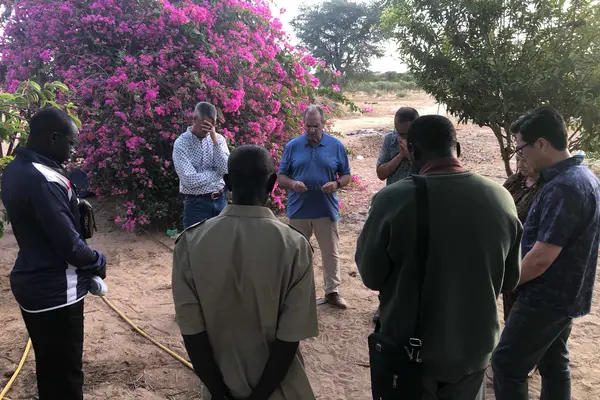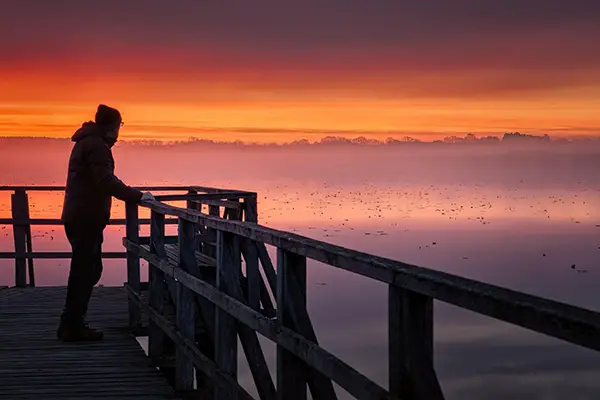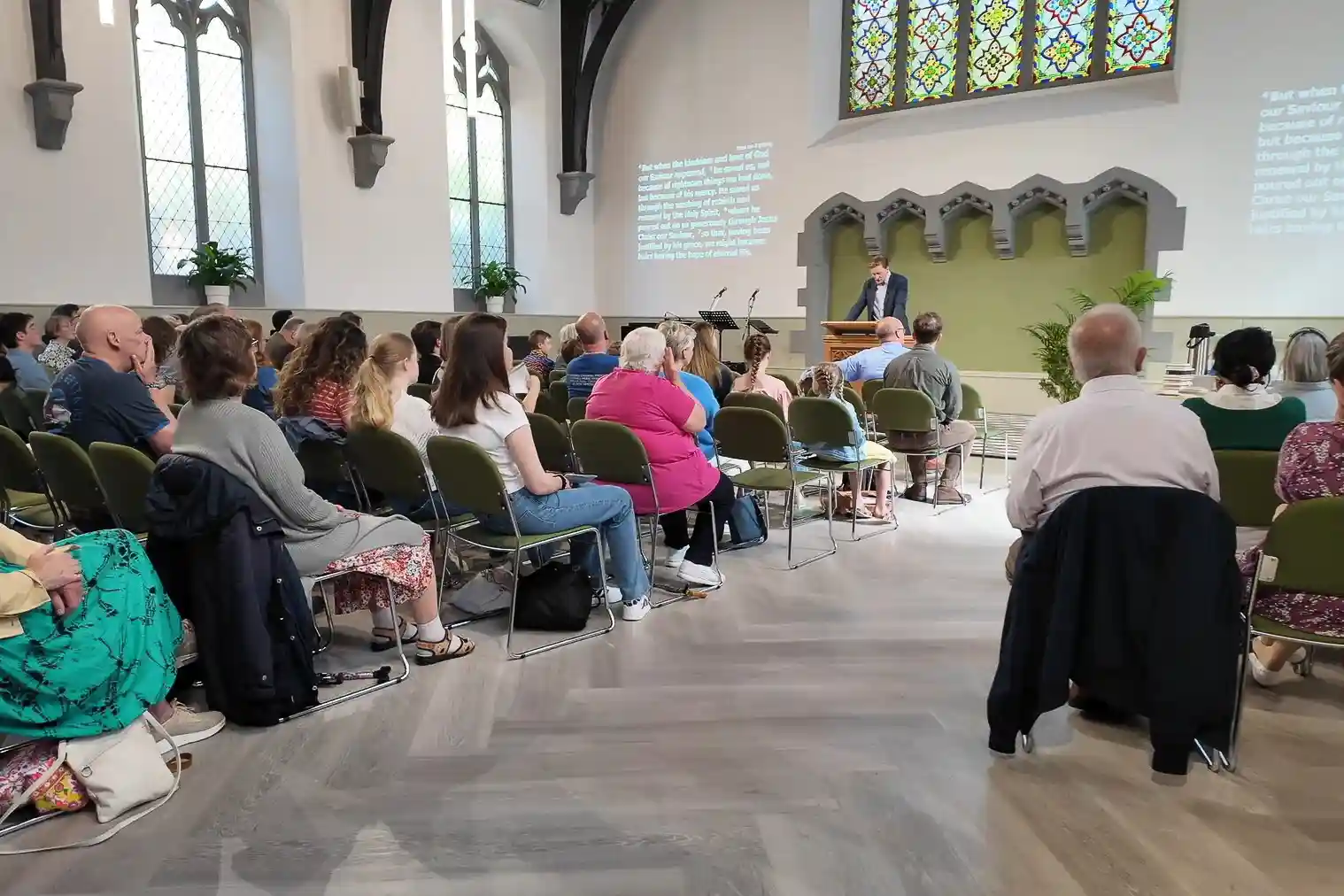Sharing the “Teranga” of God Among the Wolof People

Warm welcome—teranga in the Wolof language—is ubiquitous in Senegal.
Teranga gets first mention in tourist guidebooks as hospitality extended to strangers and neighbors alike. It’s being welcomed to any meal. It’s a door-always-open-so-join-us expectation. It’s even in the name of the laureled national soccer team, the Lions of Teranga.
A new church plant is sharing the biblical teranga of grace, one rarely heard in this West African country.
Senegalese pastor Moustapha Sene,* along with MTW church planters, started last year to establish a gospel welcome to the Wolof people, an ethnic group of more than 7 million people who are considered unreached. These people need to hear the holistic gospel, the Word of God as it is given, Moustapha says.
That gospel welcome led to a new church plant.
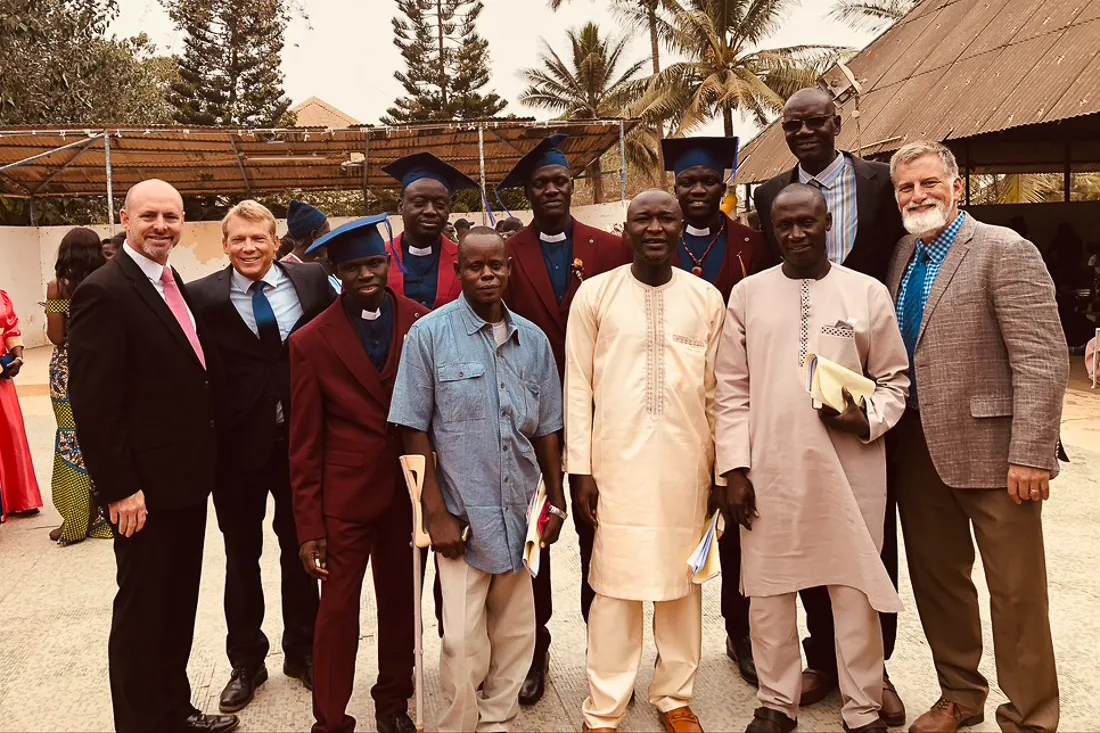
Moustapha graduated in the first cohort of the Timothy House, a residential ministry training course supported by Mission to the World and the Presbyterian Church of Senegal. Of the four graduates, two serve in urban churches. Another started a campus ministry.
Moustapha, along with MTW’s Donnie and Kara Willis,* went to the dry, red soil of rural Senegal to get to know the Wolof people. The younger generations seem to be more curious, but have little understanding about Jesus. But what moves people isn’t just answering their curiosity. The strongest bridge to the gospel is addressing their fears, says Moustapha. The fears of poverty, isolation, and death. These fears may be present everywhere, but Wolof culture heightens them.
“Everybody’s story touches on those three fears,” he says. When we are able to preach about God as He shows Himself in the Bible, we have ready answers to these fears.
Donnie, team leader and pastor, gets excited talking about it. The gospel offers the very security, community, and peace the Wolof people long for.
Telling people how we are brought into God’s family as His children “blows the doors of the gospel open,” he says. The sureness of grace is a completely different approach to God. It’s amazing to get to talk about the nearness of God, the security of His love through Christ.
Avoiding Uncomfortable Topics Has Kept the True Gospel at Bay
Centuries of missionary work have made few inroads into the tightly woven culture of the Wolof people. In fact, Protestant Christians say they are invisible in this region of Senegal, with such little evangelical impact that they are not a threat to any other religious groups. Within this spiritual nation, they make up half of 1 percent, and those are overwhelmingly immigrants.
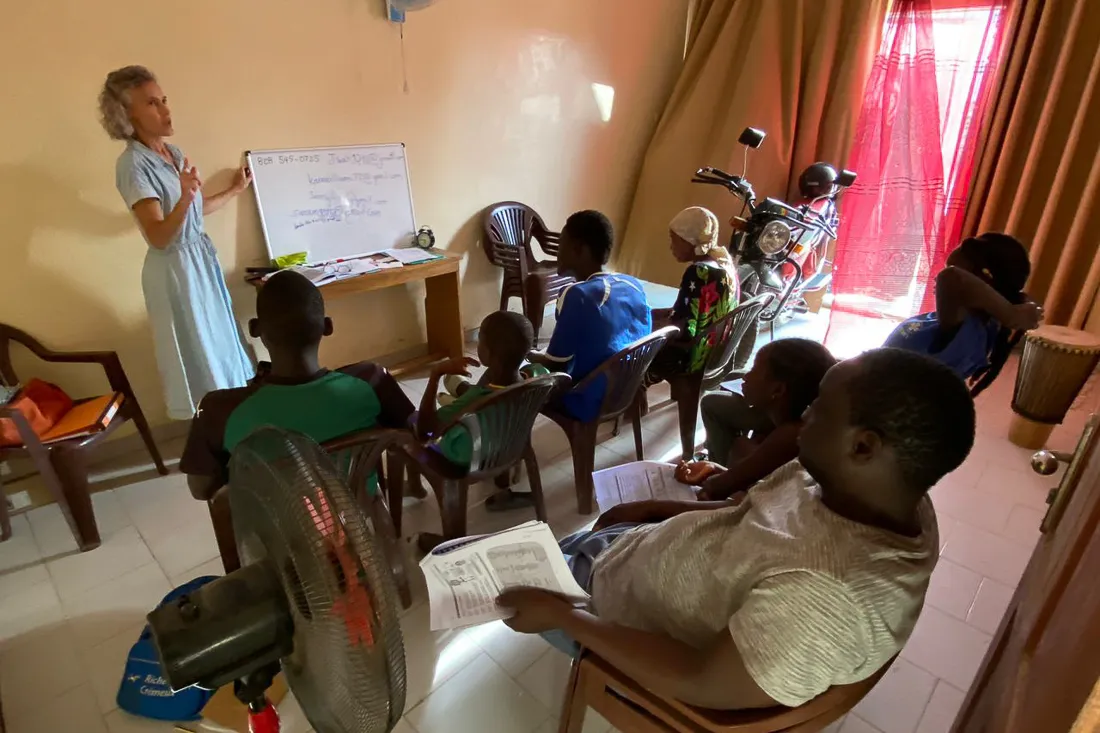
It’s not that God is absent. God has always been at work here, says Kara, a church plant team member who grew up in several African countries.
“We see different aspects of God’s character in cultures. God’s character is already here, and it is for us to discover.”
But gospel-preaching churches are barely present.
For all its beautiful aspects, teranga has brittle places that can’t tolerate pressure. This get-along cultural mainstay means that people can’t talk about differences, Kara says.
“There isn’t open antagonism to Christianity, but a desire to keep everything at peace. Conversations get shoved under this all-purpose rug of not talking about uncomfortable things.” So worshipping God as presented in the Bible is a hard and different path, even for the few Catholic villages among these people.
In Senegal there is a popular saying that the population is 95% Muslim, 5% Catholic, and 100% Animist. It makes for a form of both Islam and Christianity thickly mixed with regional spirituality.
MTW’s Regional Director for West Africa Jim Weber* adds that there is great spiritual darkness. “Satan is a great contextualizer and has played into fear and taboo. These dark forces continue to enslave people to a deep fear and dark rituals.”
On top of this, there is all that comes with poverty in a region that is politically unstable and becoming increasingly radicalized, he says.
“It is going to take time and generations of Christian growth. The gospel has its work cut out for it.
A Crossroads of Population Growth and Faith Explosion
But the MTW team sees the gospel doing its work, starting to spread family by family, village by village.
“We are at a huge turning point,” Jim says. “Even in this hard context, we have seen more Muslims turn to Christ in sub-Saharan Africa in the past three decades than in the past three centuries.
“We work with a national church of first-generation believers. We now are seeing the beginnings of an all-Senegalese second generation. For the first time, we have covenant kids who are looking to grow their faith. The bench is deepening of men and women who are rising up to lead and serve.”
Just as the Presbyterian Church of Senegal is at a turning point, so is the country itself. Because Senegal, like the rest of Africa, is at a crossroad of population and faith explosion.
It is a young country on the youngest continent in the world—most people in sub-Saharan Africa are teenagers. At that growth rate, one in four people on the planet will be African in the next generation.
According to the Pew Research Center, by 2060 four in 10 Christians will live in sub-Saharan Africa, and the share of sub-Saharan Muslims will move from 16% to 27%. This positions the region to become a powerful heartland for the world’s two major religions.
“Since northern Africa is heavily Muslim and southern Africa is heavily Christian, the great meeting place is in the middle, a 4,000-mile swath from Somalia in the east to Senegal in the west,” the center reports.
But sociologists note beneath teranga’s surface, the apparent tolerance is more complicated. Unity comes through a cemented social structure that runs from ruling class to slave class. Increased globalization is stretching that social structure. And a pressing question is whether its religious acceptance can withstand the increased radicalization happening in neighboring countries.
A New Church Generates Outreach Opportunities
While these global trends are being analyzed in offices and classrooms, they are lived out in semi-arid desert communities that look more sleepy than strategic, communities filled with people who are predominantly young, poor, and restless for opportunity. This is where the team is extending an enduring welcome of grace.
Preaching the gospel as presented in the Bible goes hand in hand with social outreach and helping the most disadvantaged, Moustapha says. So the church plant is located near seven acres of land set aside for a ministry center that will be called Teranga Village. It is a home for girls particularly vulnerable to human trafficking or child marriage. It will also have an agricultural center and visiting medical clinics.
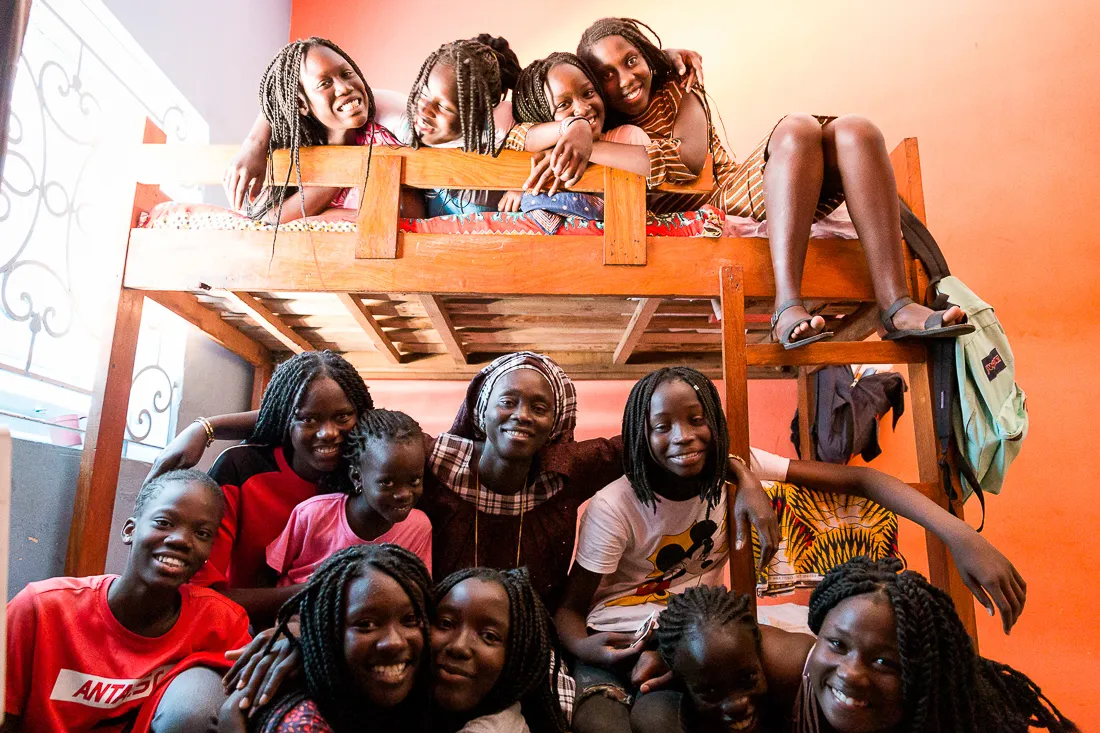
This ministry now has 37 girls at a secure location in nearby Dakar, but the building can’t expand and there is no room for farming or work to make the girls’ home sustainable. The MTW team is raising funds now to build Teranga Village.
Serving the poor and offering a new type of community could be one of the most critical pieces of evangelism—a way to tangibly show the love of Christ.
A New Kind of Terenga
Senegal polls highest in the world for religiosity, with 98% of people ranking religion as “very important” to them. Many people are afraid to leave their religion, which they consider their culture. And if you transgress culture, you’re often banished from the family, Moustapha says.
In other words, teranga stops. Some new believers have been forced to attend their own “funeral.” Many return to their previous ways of worship rather than face isolation.
So a new Christian community has to welcome seekers and new believers from the start.
That kind of welcome means even official church services must adapt to another Wolof attribute: their openness. Kara says in a 90-minute service, 10 people may stop by to say hello or charge their phones. What could be distracting to a foreigner is an important piece of Wolof culture, she notes. Plus neighbors are hearing and watching the church.
“We have to be sensitive as we work with this growing national church,” Jim says.
Senegal gained its independence from France in 1960. “The dark history of colonialism and post-colonialism muddies missions,” Jim says. “We have to be sensitive that we are not ever seen as a new colonialism wrapped in spiritual garb.”
Along the way, the MTW team continues to give and to receive hospitality from the Wolof as they share the gospel. They also see, like Donnie and Kara mentioned, how God has built Bible bridges into Wolof culture that are “theirs to discover.”
*Last names have been changed for security purposes.
